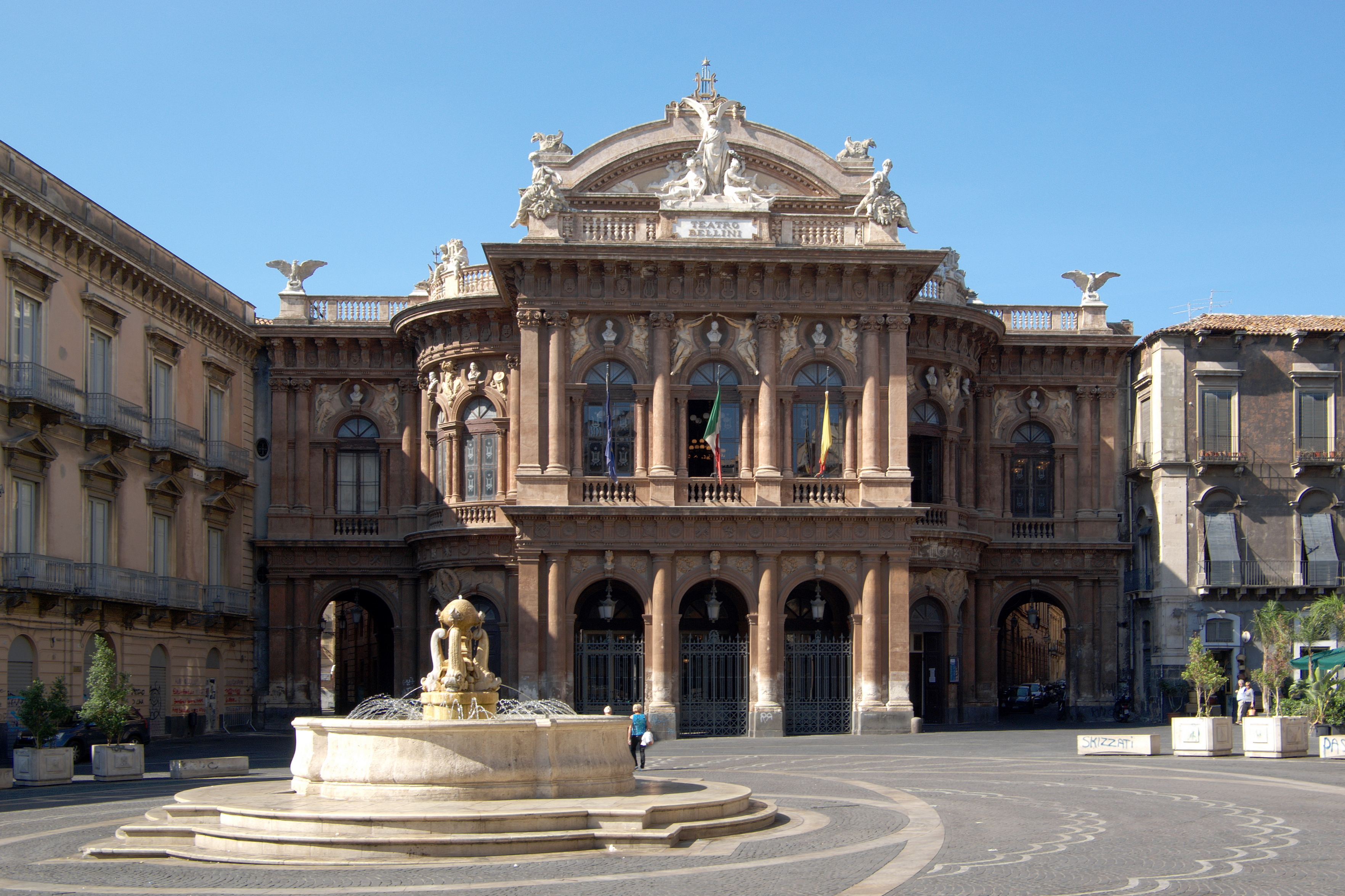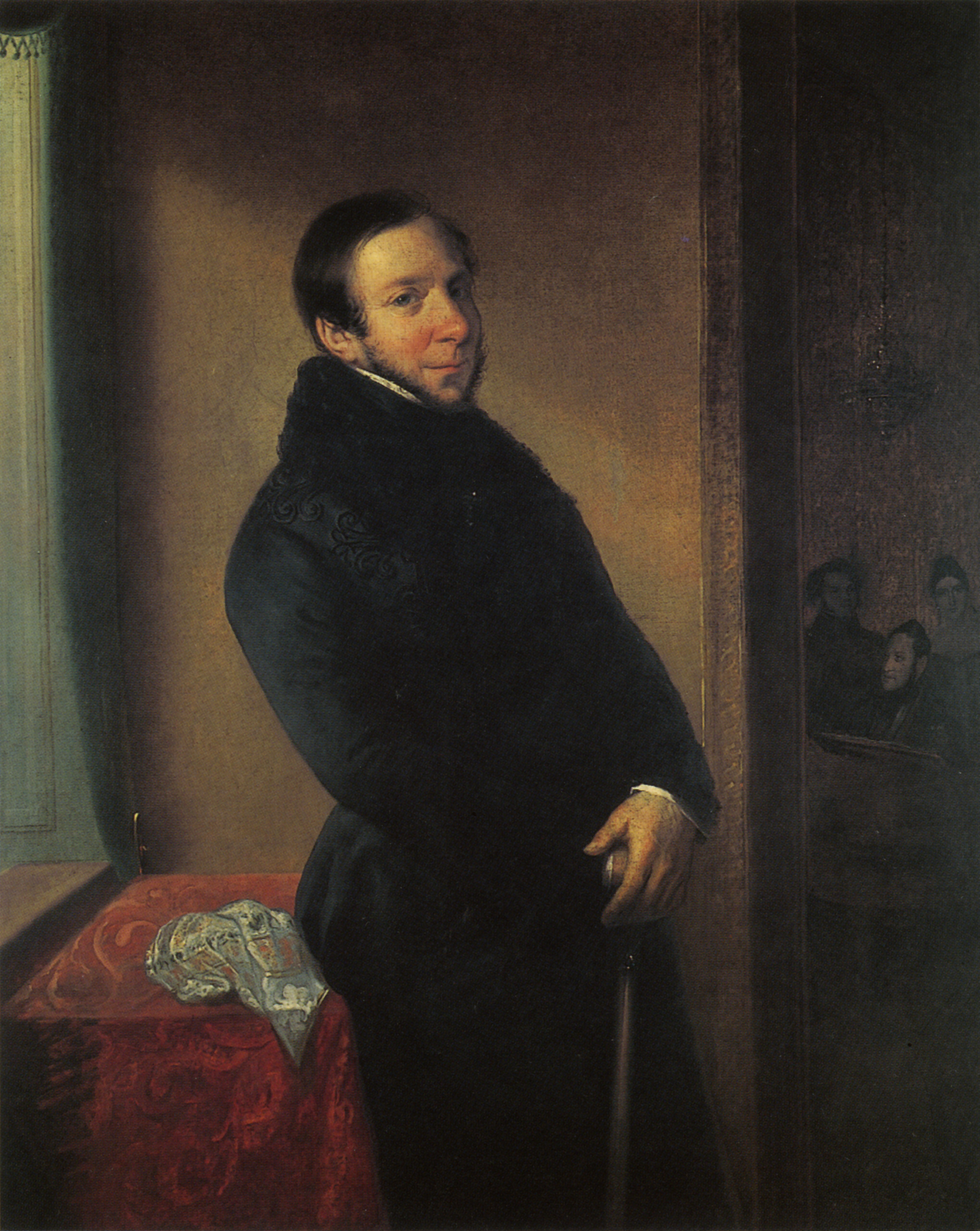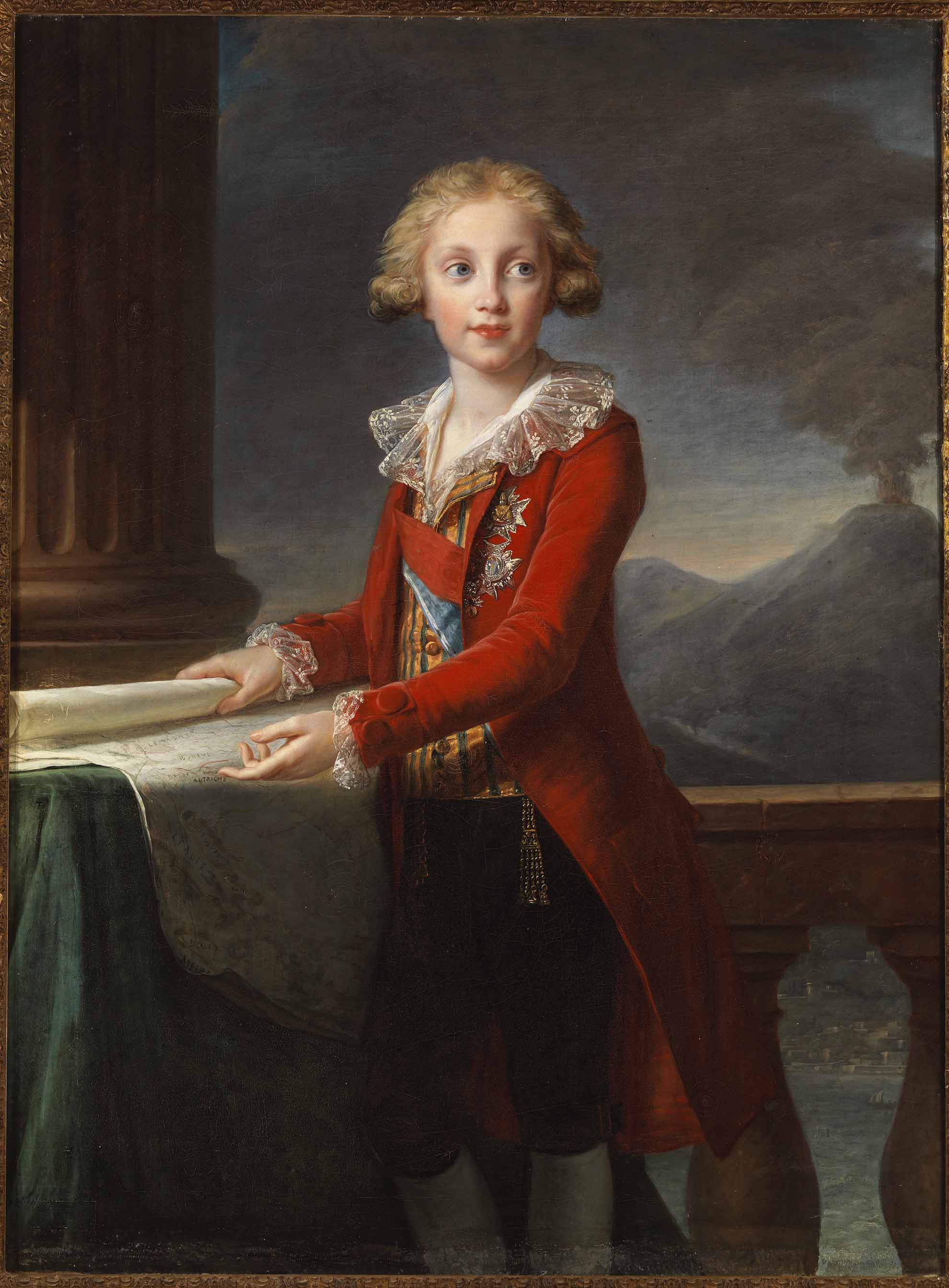|
L'ultimo Giorno Di Pompei
''L'ultimo giorno di Pompei'' ("The last day of Pompeii") is an opera (''dramma per musica'') in two acts composed by Giovanni Pacini to an Italian libretto by Andrea Leone Tottola. It premiered to great success at the Teatro San Carlo in Naples on 19 November 1825 followed by productions in the major opera houses of Italy, Austria, France, and Portugal. When Pacini's popularity declined in the mid-19th century, the opera was all but forgotten until 1996 when it received its first performance in modern times at the Festival della Valle d'Itria in Martina Franca. ''L'ultimo giorno di Pompei'' influenced either directly or indirectly several other 19th-century works, most notably Karl Bryullov's 1833 painting, '' The Last Day of Pompeii''. Background and performance history ''L'ultimo giorno di Pompei'' was the third of Pacini's operas to premiere at the Teatro San Carlo in Naples. It was commissioned to celebrate the name day of Queen María Isabella of the Two Sicilies. The librett ... [...More Info...] [...Related Items...] OR: [Wikipedia] [Google] [Baidu] |
Alessandro Sanquirico
Alessandro Sanquirico (27 July 1777, in Milan – 12 March 1849, in Milan) was an Italian scenic designer, architect, and painter. He began his career in conjunction with leading artists of the time such as Paolo Landriani, Giovanni Pedroni, Giovanni Perego, and Georgio Fuentes.Sheren in Grove 1998, pp. 168–169. Additionally, he studied architecture and perspective with Giuseppe Piermarini, the architect of the La Scala opera house. Altogether, he designed over 300 productions for that house, including many premières. Specifically, they included four operas by Vincenzo Bellini. Works For fifteen years, from 1818 to 1832, Sanquirico dominated the visual style of La Scala, not only on stage, but also in the auditorium. He designed the ballets of Salvatore Viganò at the beginning of the 19th century, and the world premières of Rossini's ''La gazza ladra'', Bellini's ''Il pirata'', ''La straniera'', ''La sonnambula'' as well as ''Norma'' in 1831. His set designs were prepar ... [...More Info...] [...Related Items...] OR: [Wikipedia] [Google] [Baidu] |
Edward Bulwer-Lytton
Edward George Earle Lytton Bulwer-Lytton, 1st Baron Lytton, PC (25 May 180318 January 1873) was an English writer and politician. He served as a Whig member of Parliament from 1831 to 1841 and a Conservative from 1851 to 1866. He was Secretary of State for the Colonies from June 1858 to June 1859, choosing Richard Clement Moody as founder of British Columbia. He was created Baron Lytton of Knebworth in 1866. Bulwer-Lytton's works sold and paid him well. He coined famous phrases like "the great unwashed", "pursuit of the almighty dollar", "the pen is mightier than the sword", " dweller on the threshold", and the opening phrase "It was a dark and stormy night." The sardonic Bulwer-Lytton Fiction Contest, held annually since 1982, claims to seek the "opening sentence of the worst of all possible novels". Life Bulwer was born on 25 May 1803 to General William Earle Bulwer of Heydon Hall and Wood Dalling, Norfolk and Elizabeth Barbara Lytton, daughter of Richard Warburton Lytto ... [...More Info...] [...Related Items...] OR: [Wikipedia] [Google] [Baidu] |
Dynamic (record Label)
Dynamic is an Italian independent record label located in Genoa. Founded in 1978, it specialises in classical music and opera, especially rarely performed works and has produced several world premiere recordings. The Dynamic catalogue contains over 400 titles, with about 25 new titles added each year and is distributed in 32 countries. History Dynamic was founded in 1978 by Pietro Mosetti Casaretto and his wife Marisa. Mosetti Casaretto, a surgeon and amateur violinist, took over a small label founded by the musicologist Edward Neill. In the beginning, Dynamic was a small family business. Mosetti Casaretto and his wife recorded in local churches, oratories and villas. The first recordings were issued on vinyl, the very first one being Paganini's ''Barucabà Variations'' played by Salvatore Accardo. In 1985 the company moved to its current site in the Villa Quartana on the Righi hill overlooking Genoa, where it set up a recording hall that could house a small chamber orchestra. In ... [...More Info...] [...Related Items...] OR: [Wikipedia] [Google] [Baidu] |
Teatro Massimo Bellini
The Teatro Massimo Bellini is an opera house located on Piazza Vincenzo Bellini in Catania, Sicily, southern Italy. Named after the local-born composer Vincenzo Bellini, it was inaugurated on 31 May 1890 with a performance of the composer's masterwork, ''Norma''. It seats 1,200. History The creation of what was to finally become the Teatro Massimo Bellini took almost two hundred years, beginning with discussions following the disastrous 1693 earthquake which completely destroyed Catania. The construction of a public theatre was discussed, and a foundation stone was finally laid in 1812. Architect Salvatore Zahra Buda began to prepare a plan for a theatre in the Piazza Nuovaluce, in front of the Santa Maria di Nuovaluce monastery, the location of the present-day theatre. It was decided that a "Great Municipal Theatre" worthy of an expanding city should be created; the plan of the "Teatro Nuovaluce" (New Light Theatre) was a grandiose one in all respects, and was conceived ... [...More Info...] [...Related Items...] OR: [Wikipedia] [Google] [Baidu] |
Domenico Barbaia
Domenico Barbaia (also spelled Barbaja; 10 August 1777 – 19 October 1841) was best known as an opera Italian impresario. An energetic man, Barbaia, who was born in Milan, began his career by running a coffee shop. He made his first fortune by creating (or at least taking the credit for creating) a special kind of coffee with frothing milk, the " Barbajada", probably the first "cappuccino." This drink, and a variation with hot chocolate like Bicerin, became so popular in Milan that the erstwhile waiter was able to open a string of coffee houses in the city that all featured his novel concoction. Barbaia made his second fortune by buying and selling munitions during the Napoleonic wars. Also, after the French re-allowed gambling as they advanced southwards in Italy, he became involved in the operations as a card dealer at the La Scala opera house, but quickly achieved the position of sub-contractor to run the entire gaming operation of the house in 1805. With his eyes on contr ... [...More Info...] [...Related Items...] OR: [Wikipedia] [Google] [Baidu] |
La Fenice
Teatro La Fenice (, "The Phoenix") is an opera house in Venice, Italy. It is one of "the most famous and renowned landmarks in the history of Italian theatre" and in the history of opera as a whole. Especially in the 19th century, La Fenice became the site of many famous operatic premieres at which the works of several of the four major bel canto era composers – Rossini, Bellini, Donizetti, Verdi – were performed. Its name reflects its role in permitting an opera company to "rise from the ashes" despite losing the use of three theatres to fire, the first in 1774 after the city's leading house was destroyed and rebuilt but not opened until 1792; the second fire came in 1836, but rebuilding was completed within a year. However, the third fire was the result of arson. It destroyed the house in 1996 leaving only the exterior walls, but it was rebuilt and re-opened in November 2004. In order to celebrate this event the tradition of the Venice New Year's Concert started. Hist ... [...More Info...] [...Related Items...] OR: [Wikipedia] [Google] [Baidu] |
Theater Am Kärntnertor
or (Carinthian Gate Theatre) was a prestigious theatre in Vienna during the eighteenth and nineteenth centuries. Its official title was (Imperial and Royal Court Theatre of Vienna). History The theatre was built in 1709 to designs by Antonio Beduzzi on a site near the former Kärntnertor, on the grounds of the present Hotel Sacher. The expenses of building the theatre were borne by the City of Vienna, and it was intended (as Eva Badura-Skoda notes)Badura-Skoda 1973 to be "frequented by the Viennese population of all classes". However, at the command of the emperor, the first performances were of Italian operas, an elite form of entertainment. In 1711, the theatre was redirected to its original purpose when it was placed under the direction of Josef Stranitzky, who put on a variety of entertainment, often embodying a German version of the Italian commedia dell'arte. The theatre was managed by Stranitzky's widow after his death. In 1728, court artists Borosini and Sellier ... [...More Info...] [...Related Items...] OR: [Wikipedia] [Google] [Baidu] |
Ducat
The ducat () coin was used as a trade coin in Europe from the later Middle Ages from the 13th to 19th centuries. Its most familiar version, the gold ducat or sequin containing around of 98.6% fine gold, originated in Venice in 1284 and gained wide international acceptance over the centuries. Similarly named silver ducatons also existed. The gold ducat circulated along with the Florentine florin and preceded the modern British pound sterling and the United States dollar. Predecessors The word ''ducat'' is from Medieval Latin ''ducalis'' = "relating to a duke (or dukedom)", and initially meant "duke's coin" or a "duchy's coin". The first issue of scyphate billon coins modelled on Byzantine ''trachea'' was made by King Roger II of Sicily as part of the Assizes of Ariano (1140). It was to be a valid issue for the whole kingdom. The first issue bears the figure of Christ and the Latin inscription ''Sit tibi, Christe, datus, quem tu regis iste ducatus'' (meaning "O Christ, let thi ... [...More Info...] [...Related Items...] OR: [Wikipedia] [Google] [Baidu] |
Francis I Of The Two Sicilies
Francis I of the Two Sicilies ( it, Francesco Gennaro Giuseppe Saverio Giovanni Battista; 19 August 1777 – 8 November 1830) was King of the Two Sicilies from 1825 to 1830 and regent of the Kingdom of Sicily from 1806 to 1814. Biography Francis was born the son of Ferdinand I of the Two Sicilies and his wife Archduchess Maria Carolina of Austria in Naples. He was also the nephew of Marie Antoinette and Louis XVI, the last King and Queen of France before the first French Republic. At the death of his older brother Carlo, Duke of Calabria, Francis became the heir-apparent to the throne and ''Duke of Calabria'', the traditional title of the heir apparent to the Neapolitan throne. Later life In 1796 Francis married his double first cousin Archduchess Maria Clementina of Austria, daughter of Leopold II, Holy Roman Emperor. When she died, he married his first cousin María Isabella, daughter of King Charles IV of Spain. After the Bourbon family fled from Naples to Sicily in 1 ... [...More Info...] [...Related Items...] OR: [Wikipedia] [Google] [Baidu] |
Karl Briullov, The Last Day Of Pompeii (1827–1833, Detail Of Yuliya Samoylova)
Karl may refer to: People * Karl (given name), including a list of people and characters with the name * Karl der Große, commonly known in English as Charlemagne * Karl Marx, German philosopher and political writer * Karl of Austria, last Austrian Emperor * Karl (footballer) (born 1993), Karl Cachoeira Della Vedova Júnior, Brazilian footballer In myth * Karl (mythology), in Norse mythology, a son of Rig and considered the progenitor of peasants (churl) * ''Karl'', giant in Icelandic myth, associated with Drangey island Vehicles * Opel Karl, a car * ST ''Karl'', Swedish tugboat requisitioned during the Second World War as ST ''Empire Henchman'' Other uses * Karl, Germany, municipality in Rhineland-Palatinate, Germany * '' Karl-Gerät'', AKA Mörser Karl, 600mm German mortar used in the Second World War * KARL project, an open source knowledge management system * Korean Amateur Radio League, a national non-profit organization for amateur radio enthusiasts in South Korea * KARL ... [...More Info...] [...Related Items...] OR: [Wikipedia] [Google] [Baidu] |





_-_Facade.jpg)


